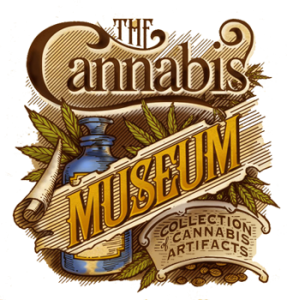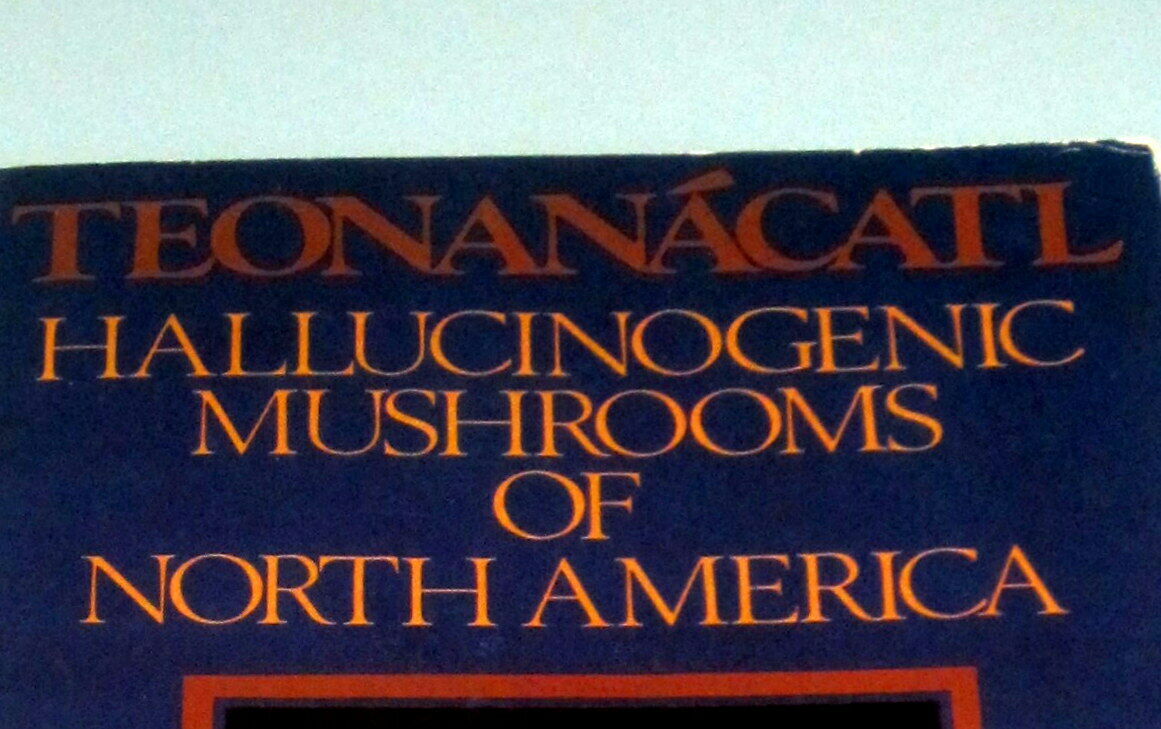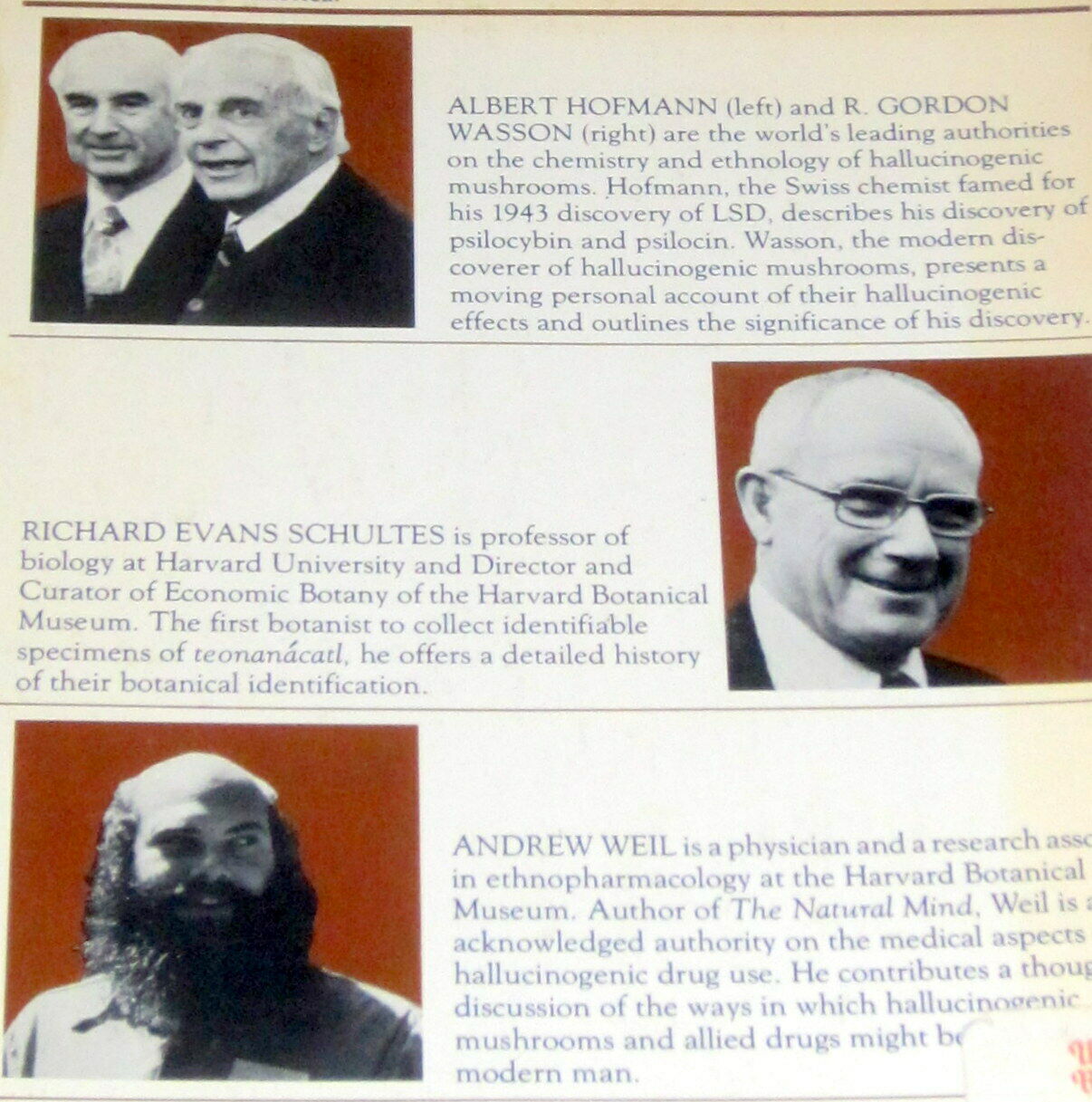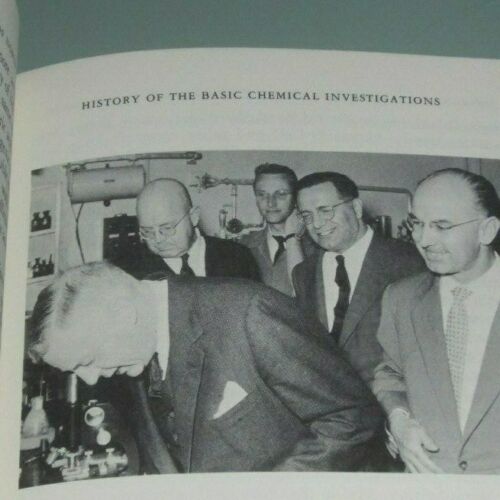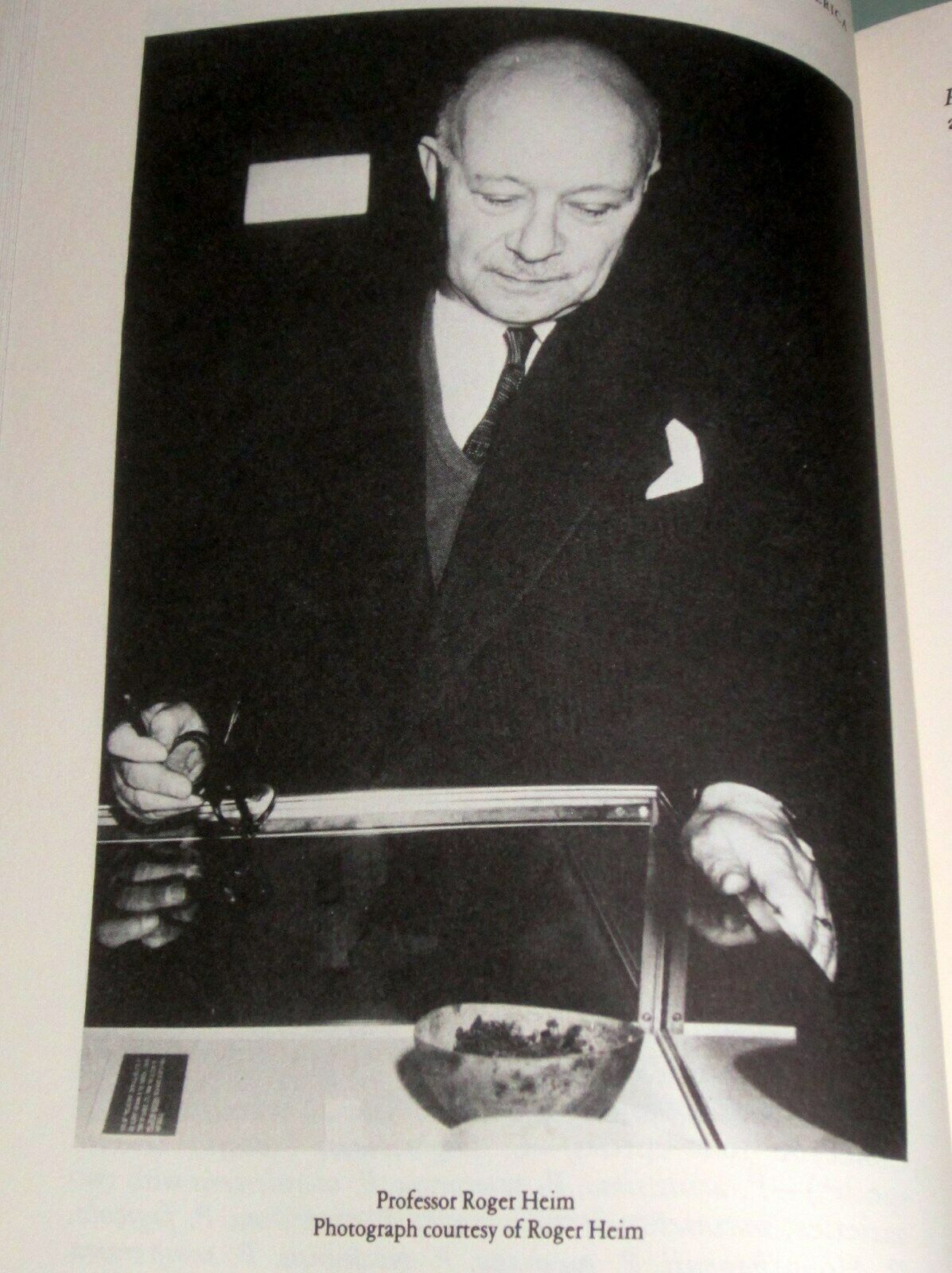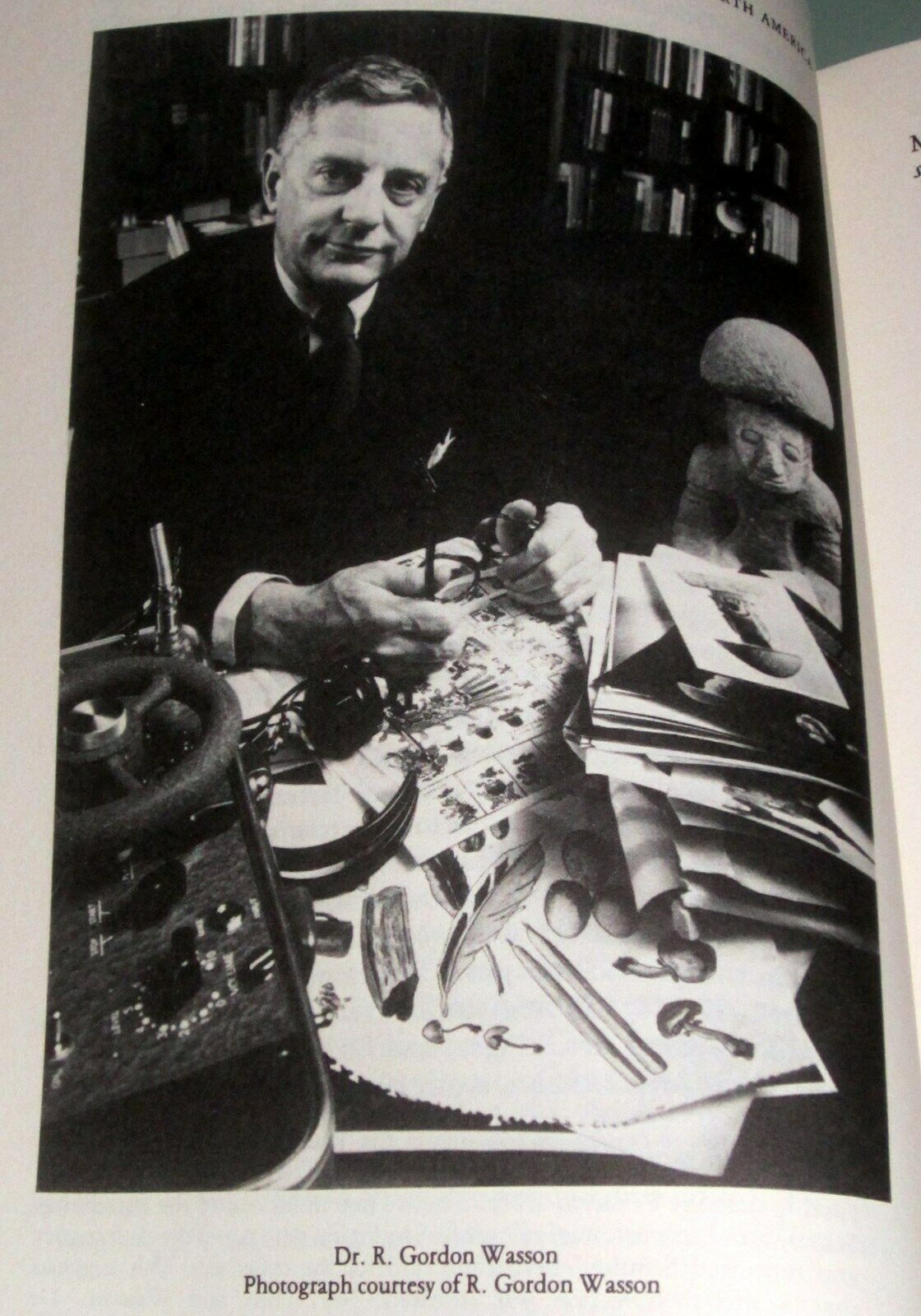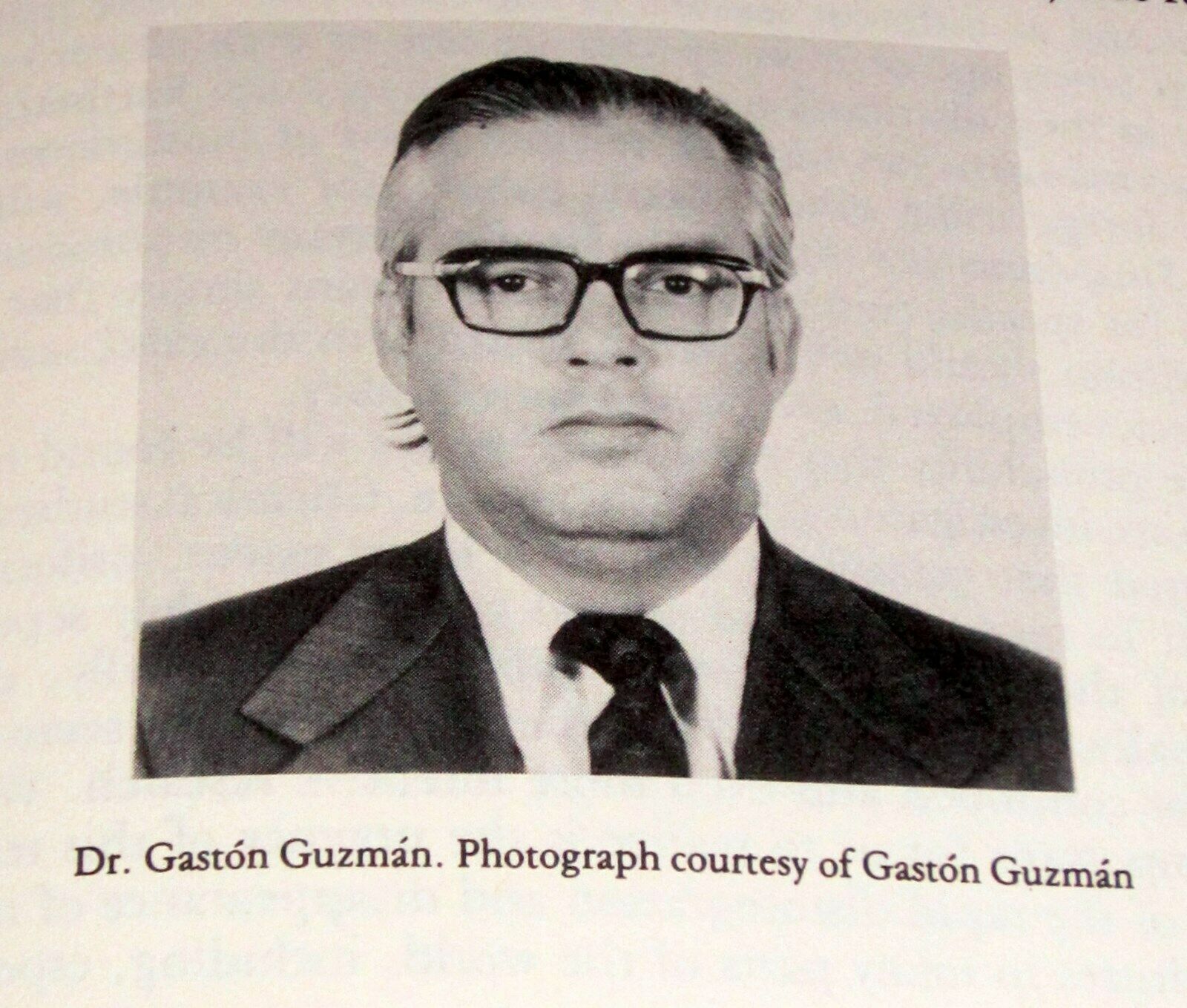Teonanacatl
Dublin Core
Title
Description
Navy blue, brown and tan text.
Contributor
Date
Language
Format
Publisher
Identifier
0914842293
Book Item Type Metadata
Sub Title
Hallucinogenic Mushrooms of North America
Pages
175
Dimensions
8.5" x 5.5" x 1"
Condition
Fair
Slightly worn cover
Slightly worn cover
Listing Title
1977 PSYCHEDELIC TEONANACATL HALLUCINOGENIC MAGIC MUSHROOMS WASSON HOFMANN
Seller ID
Seller Notes
TEONANACATL: HALLUCINOGENIC MUSHROOMS OF NORTH AMERICA:
Extracts from the Second International Conference on Hallucinogenic Mushrooms,
Held October 27-30, 1977, Near Port Townsend, Washington , USA
By Jonathan Ott & Jeremy Bigwood
Publisher is Madrona Publishers Seattle, Washington
1978 First Soft Cover Edition
This book is a pictorial soft cover in very good plus condition with 175 pages, index and with color & black and white photographs & illustrations.
Based on proceedings of the 2nd International Scientific Conference on Hallucinogenic Mushrooms, held in Port Townsend, Washington in October, 1977.
This is the First Comprehensive book on Teonanacatl, the Sacred Mushrooms of North America.
Contributions by R. Gordon Wasson, Dr. Albert Hofmann, Dr. Andrew Weil and Richard Evans Schultes.
PARTIAL CONTENTS LIST
Exordium : A Brief History of Hallucinogenic Mushrooms by Jonathan Ott
An Archaeological Record
The Conquest and Inquisition
The Pharmacotheon is Recovered from Oblivion
Teonanacatl is Rendered Available to the World
Legal and Medical Status of Psychedelic Mycophagy
Bibliography
PART I = Discovery of Teonanacatl
A. Evolution of the Identification of the Sacred Hallucinogenic Mushrooms of Mexico by Richard Evans Schultes
B. History of the Basic Investigations on the Sacred Mushrooms of Mexico by Dr. Albert Hofmann
C. The Hallucinogenic Fungi of Mexico: An Inquiry into the Origins of the Religious Idea Among Primitive Peoples by R. Gordon Wasson
PART II == Hallucinogenic Mushrooms of North America by Jonathan Ott and Jeremy Bigwood
PART III = PsilocybianMushroom by Jeremy Bigwood
Appendix
Bibliography
Epilogue = Reflections on Psychedelic Mycophagy by Andrew Weil
APPENDIX A = The Second International Conference on Hallucinogenic Mushrooms
APPENDIX B == Suggested General Reading
APPENDIX C ==Common Name Index
INDEX
COLOR PHOTOGRAPHS (following p. 118)
PARTIAL LIST OF BLACK-AND- WHITE PHOTOGRAPHS & ILLUSTRATIONS
Facsimile of Schultes' famous 1939 paper.
Teonanacatl, as depicted in Sixteenth Century Magliabechiano Codex.
Teonanacatl, a Sixteenth Century European conception.
Dr. William E. Safford, venerable ethnobotanist who erred in his identification of Teonanacatl.
Dr. Blas Pablo Reko, first botanist to collect teonanacatl.
Dr. R. Gordon Wasson, father of ethnomycology, first outsider to ingest teonanacatl.
Dr. Roger Heim, first to delineate taxonomically the sacred mushrooms of Mexico.
Dr. Gaston Guzman, pioneering Mexican mycologist.
R. Gordon Wasson seeing psilocybinfor the first time in Albert Hofmann's laboratory at Sandoz in Basel.
Facsimile of Wasson's classic 1961 paper.
Clavicepspurpurea (Fr.) Tulasne
Gymnopilus spectabilis (Fr.) Smith
Panaeolus subbalteatus (Berk. and Br.) Sacc.
Psilocybebaeocystis Singer and Smith
Psilocybecaerulescens Murrill var. Mazatecorum Heim
Psilocybecyanescens Wakefield
Psilocybemexicana Heim
Psilocybepelliculosa (Smith) Singer and Smith
Psilocybesemilanceata (Fr.) Kummer
Psilocybestuntzii Guzman and Ott
Psilocybezapotecorum Heim
Stropharia cubensis Earle
ALBERT HOFMANN and R. GORDON WASSON are the world's leading authorities on the chemistry and ethnology of hallucinogenic mushrooms. Hofmann, the Swiss chemist famed for his 1943 discovery of LSD, describes his discovery of magic mushroom active ingredients. Wasson, the modern discoverer of hallucinogenic mushrooms, presents a moving personal account of their hallucinogenic effects and outlines the significance of his discovery.
RICHARD EVANS SCHULTES is professor of biology at Harvard University and Director and Curator of Economic Botany of the Harvard Botanical Museum. The first botanist to collect identifiable specimens of teonanacatl, he offers a detailed history of their botanical identification.
ANDREW WEIL is a physician and a research associate in ethno pharmacology at the Harvard Botanical Museum. Author of The Natural Mind, Weil is an acknowledged authority on the medical aspects of hallucinogenic drug use. He contributes a thoughtful discussion of the ways in which hallucinogenic mushrooms and allied drugs might best be used by modern man.
JONATHAN OTT is a freelance writer and chemist who has conducted chemical, botanical, and ethnological research and published in scientific and popular literature.
JEREMY BIGWOOD is a photographer and writer who has published widely on hallucinogenic fungi. His color photographs illustrate important species.
MORE ABOUT == Robert Gordon Wasson (September 22, 1898 – December 23, 1986) was an American author, ethno mycologist, and a vice president at J.P. Morgan & Co. In the course of independent research, he made contributions to the fields of ethno botany, botany, and anthropology. Several of his books were self-published in illustrated, limited editions that have never been reprinted.
PARTIAL LIST OF BOOKS
1. Wasson, R. Gordon, Stella Kramrisch, Jonathan Ott, and Carl A. P. Ruck. Persephone's Quest: Entheogens and the Origins of Religion. 1986.
2. Wasson, R. Gordon. The Last Meal of the Buddha. Journal of the American Oriental Society, Vol. 102, No. 4. (Oct. – Dec., 1982).
3. Wasson, R. Gordon. The Wondrous Mushroom: Mycolatry in Mesoamerica. 1980.
4. Wasson, R. Gordon, The Road to Eleusis: Unveiling the Secret of the Mysteries. 1978.
5. Wasson, R. Gordon. Maria Sabina and Her Mazatec Mushroom Velada. 1976.
6. Wasson, R. Gordon. Soma: Divine Mushroom of Immortality. 1968.
7. Wasson, Valentina Pavlovna, and R. Gordon Wasson. Mushrooms, Russia and History. 1957.
8. Wasson, R. Gordon. Seeking the Magic Mushroom Life magazine, May 13, 1957
MORE ABOUT == Albert Hofmann (January 11, 1906 – April 29, 2008) was a Swiss scientist known best for being the first person to synthesize, ingest, and learn of the psychedelic effects of lysergic acid diethylamide (LSD). He authored more than 100 scientific articles and numerous books, including LSD: Mein Sorgenkind (LSD: My Problem Child). In 2007, he shared first place, alongside Tim Berners-Lee, in a list of the 100 greatest living geniuses, published by The Telegraph newspaper.
MORE ABOUT == Richard Evans Schultes January 12, 1915 – April 10, 2001) was an American biologist. He may be considered the father of modern ethnobotany, for his studies of indigenous peoples' (especially the indigenous peoples of the Americas) uses of plants, including especially entheogenic or hallucinogenic plants (particularly in Mexico and the Amazon), for his lifelong collaborations with chemists, and for his charismatic influence as an educator at Harvard University on a number of students and colleagues who went on to write popular books and assume influential positions in museums, botanical gardens, and popular culture.
His book The Plants of the Gods: Their Sacred, Healing, and Hallucinogenic Powers (1979), co-authored with chemist Albert Hofmann, the discoverer of LSD, is considered his greatest popular work: it has never been out of print and was revised into an expanded second edition, based on a German translation by Christian Rätsch (1998), in 2001.
psychedelia marihuana hasheesh peyote cannabis hallucinogens DMT mescaline LSD hippies entheogens
Extracts from the Second International Conference on Hallucinogenic Mushrooms,
Held October 27-30, 1977, Near Port Townsend, Washington , USA
By Jonathan Ott & Jeremy Bigwood
Publisher is Madrona Publishers Seattle, Washington
1978 First Soft Cover Edition
This book is a pictorial soft cover in very good plus condition with 175 pages, index and with color & black and white photographs & illustrations.
Based on proceedings of the 2nd International Scientific Conference on Hallucinogenic Mushrooms, held in Port Townsend, Washington in October, 1977.
This is the First Comprehensive book on Teonanacatl, the Sacred Mushrooms of North America.
Contributions by R. Gordon Wasson, Dr. Albert Hofmann, Dr. Andrew Weil and Richard Evans Schultes.
PARTIAL CONTENTS LIST
Exordium : A Brief History of Hallucinogenic Mushrooms by Jonathan Ott
An Archaeological Record
The Conquest and Inquisition
The Pharmacotheon is Recovered from Oblivion
Teonanacatl is Rendered Available to the World
Legal and Medical Status of Psychedelic Mycophagy
Bibliography
PART I = Discovery of Teonanacatl
A. Evolution of the Identification of the Sacred Hallucinogenic Mushrooms of Mexico by Richard Evans Schultes
B. History of the Basic Investigations on the Sacred Mushrooms of Mexico by Dr. Albert Hofmann
C. The Hallucinogenic Fungi of Mexico: An Inquiry into the Origins of the Religious Idea Among Primitive Peoples by R. Gordon Wasson
PART II == Hallucinogenic Mushrooms of North America by Jonathan Ott and Jeremy Bigwood
PART III = PsilocybianMushroom by Jeremy Bigwood
Appendix
Bibliography
Epilogue = Reflections on Psychedelic Mycophagy by Andrew Weil
APPENDIX A = The Second International Conference on Hallucinogenic Mushrooms
APPENDIX B == Suggested General Reading
APPENDIX C ==Common Name Index
INDEX
COLOR PHOTOGRAPHS (following p. 118)
PARTIAL LIST OF BLACK-AND- WHITE PHOTOGRAPHS & ILLUSTRATIONS
Facsimile of Schultes' famous 1939 paper.
Teonanacatl, as depicted in Sixteenth Century Magliabechiano Codex.
Teonanacatl, a Sixteenth Century European conception.
Dr. William E. Safford, venerable ethnobotanist who erred in his identification of Teonanacatl.
Dr. Blas Pablo Reko, first botanist to collect teonanacatl.
Dr. R. Gordon Wasson, father of ethnomycology, first outsider to ingest teonanacatl.
Dr. Roger Heim, first to delineate taxonomically the sacred mushrooms of Mexico.
Dr. Gaston Guzman, pioneering Mexican mycologist.
R. Gordon Wasson seeing psilocybinfor the first time in Albert Hofmann's laboratory at Sandoz in Basel.
Facsimile of Wasson's classic 1961 paper.
Clavicepspurpurea (Fr.) Tulasne
Gymnopilus spectabilis (Fr.) Smith
Panaeolus subbalteatus (Berk. and Br.) Sacc.
Psilocybebaeocystis Singer and Smith
Psilocybecaerulescens Murrill var. Mazatecorum Heim
Psilocybecyanescens Wakefield
Psilocybemexicana Heim
Psilocybepelliculosa (Smith) Singer and Smith
Psilocybesemilanceata (Fr.) Kummer
Psilocybestuntzii Guzman and Ott
Psilocybezapotecorum Heim
Stropharia cubensis Earle
ALBERT HOFMANN and R. GORDON WASSON are the world's leading authorities on the chemistry and ethnology of hallucinogenic mushrooms. Hofmann, the Swiss chemist famed for his 1943 discovery of LSD, describes his discovery of magic mushroom active ingredients. Wasson, the modern discoverer of hallucinogenic mushrooms, presents a moving personal account of their hallucinogenic effects and outlines the significance of his discovery.
RICHARD EVANS SCHULTES is professor of biology at Harvard University and Director and Curator of Economic Botany of the Harvard Botanical Museum. The first botanist to collect identifiable specimens of teonanacatl, he offers a detailed history of their botanical identification.
ANDREW WEIL is a physician and a research associate in ethno pharmacology at the Harvard Botanical Museum. Author of The Natural Mind, Weil is an acknowledged authority on the medical aspects of hallucinogenic drug use. He contributes a thoughtful discussion of the ways in which hallucinogenic mushrooms and allied drugs might best be used by modern man.
JONATHAN OTT is a freelance writer and chemist who has conducted chemical, botanical, and ethnological research and published in scientific and popular literature.
JEREMY BIGWOOD is a photographer and writer who has published widely on hallucinogenic fungi. His color photographs illustrate important species.
MORE ABOUT == Robert Gordon Wasson (September 22, 1898 – December 23, 1986) was an American author, ethno mycologist, and a vice president at J.P. Morgan & Co. In the course of independent research, he made contributions to the fields of ethno botany, botany, and anthropology. Several of his books were self-published in illustrated, limited editions that have never been reprinted.
PARTIAL LIST OF BOOKS
1. Wasson, R. Gordon, Stella Kramrisch, Jonathan Ott, and Carl A. P. Ruck. Persephone's Quest: Entheogens and the Origins of Religion. 1986.
2. Wasson, R. Gordon. The Last Meal of the Buddha. Journal of the American Oriental Society, Vol. 102, No. 4. (Oct. – Dec., 1982).
3. Wasson, R. Gordon. The Wondrous Mushroom: Mycolatry in Mesoamerica. 1980.
4. Wasson, R. Gordon, The Road to Eleusis: Unveiling the Secret of the Mysteries. 1978.
5. Wasson, R. Gordon. Maria Sabina and Her Mazatec Mushroom Velada. 1976.
6. Wasson, R. Gordon. Soma: Divine Mushroom of Immortality. 1968.
7. Wasson, Valentina Pavlovna, and R. Gordon Wasson. Mushrooms, Russia and History. 1957.
8. Wasson, R. Gordon. Seeking the Magic Mushroom Life magazine, May 13, 1957
MORE ABOUT == Albert Hofmann (January 11, 1906 – April 29, 2008) was a Swiss scientist known best for being the first person to synthesize, ingest, and learn of the psychedelic effects of lysergic acid diethylamide (LSD). He authored more than 100 scientific articles and numerous books, including LSD: Mein Sorgenkind (LSD: My Problem Child). In 2007, he shared first place, alongside Tim Berners-Lee, in a list of the 100 greatest living geniuses, published by The Telegraph newspaper.
MORE ABOUT == Richard Evans Schultes January 12, 1915 – April 10, 2001) was an American biologist. He may be considered the father of modern ethnobotany, for his studies of indigenous peoples' (especially the indigenous peoples of the Americas) uses of plants, including especially entheogenic or hallucinogenic plants (particularly in Mexico and the Amazon), for his lifelong collaborations with chemists, and for his charismatic influence as an educator at Harvard University on a number of students and colleagues who went on to write popular books and assume influential positions in museums, botanical gardens, and popular culture.
His book The Plants of the Gods: Their Sacred, Healing, and Hallucinogenic Powers (1979), co-authored with chemist Albert Hofmann, the discoverer of LSD, is considered his greatest popular work: it has never been out of print and was revised into an expanded second edition, based on a German translation by Christian Rätsch (1998), in 2001.
psychedelia marihuana hasheesh peyote cannabis hallucinogens DMT mescaline LSD hippies entheogens
Citation
Jonathan Ott and Jeremy Bigwood, “Teonanacatl,” Wirtshafter Collection-Cannabis Museum-Athens, Ohio, accessed June 7, 2025, https://cannabismuseum.com/omeka/items/show/5580.
